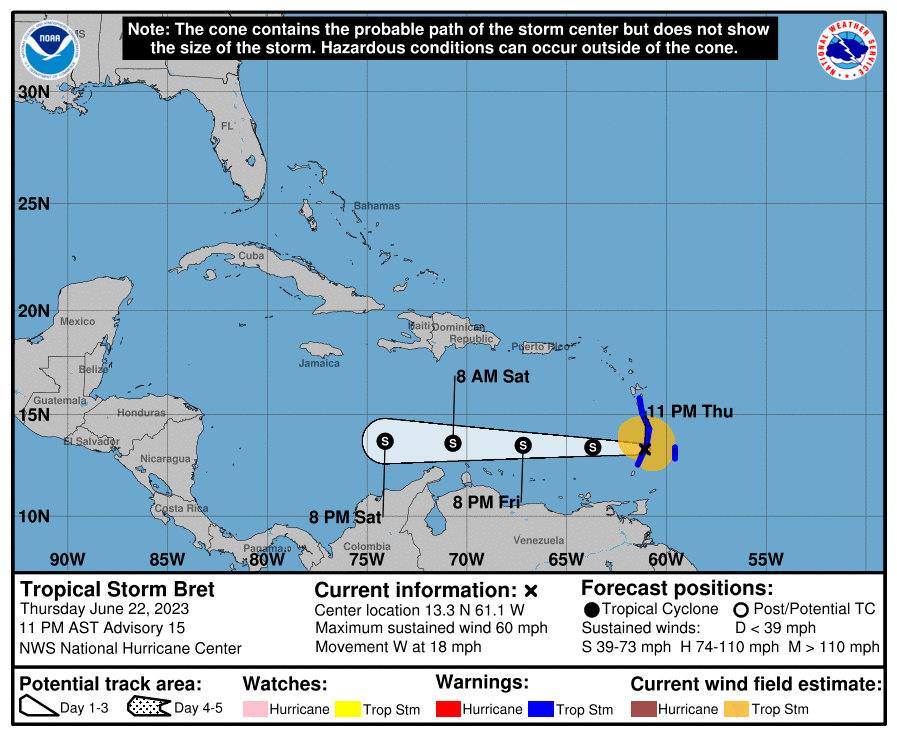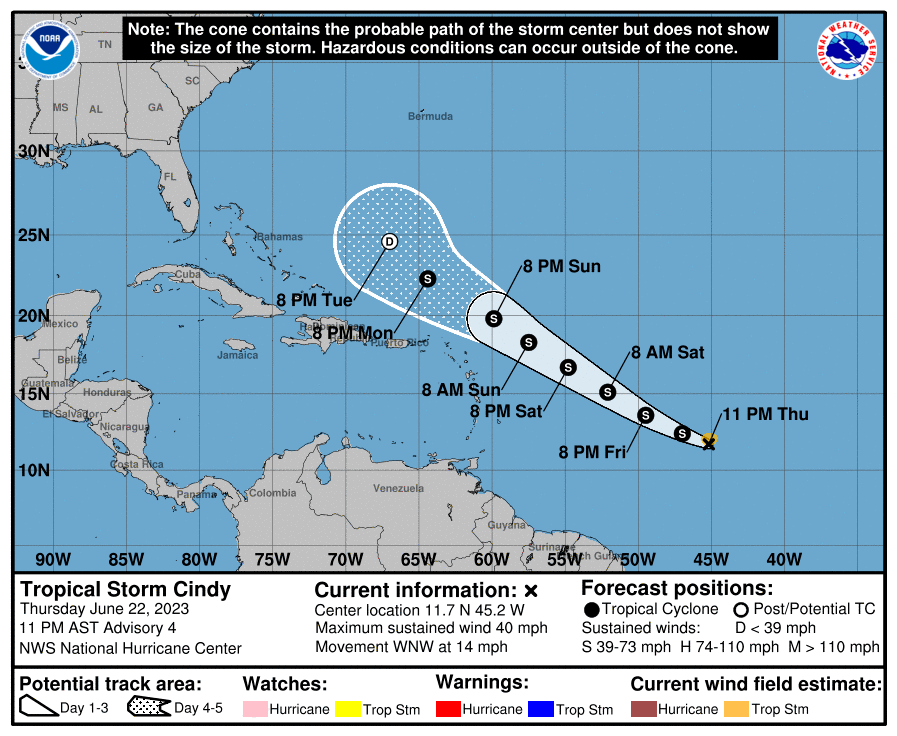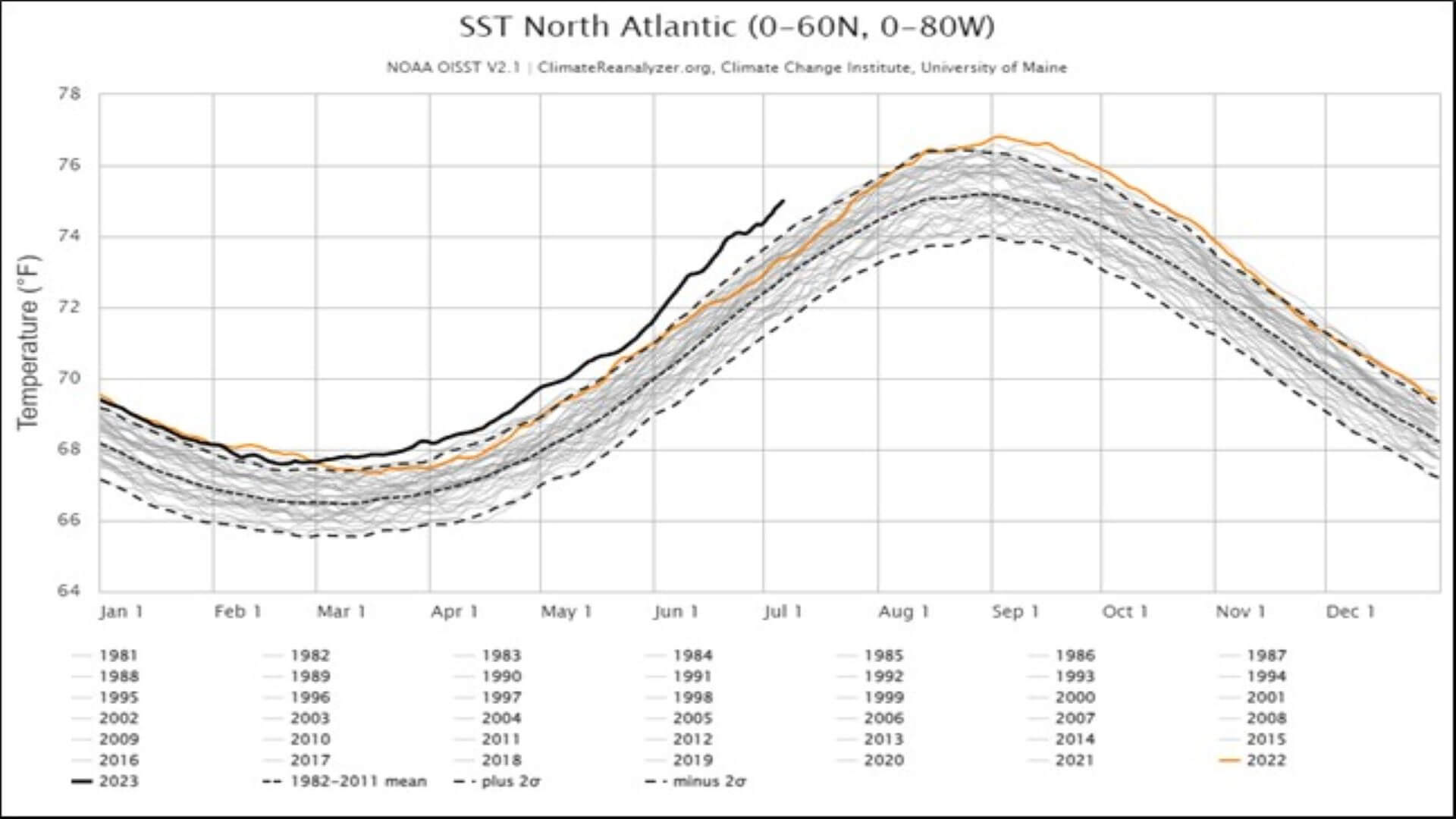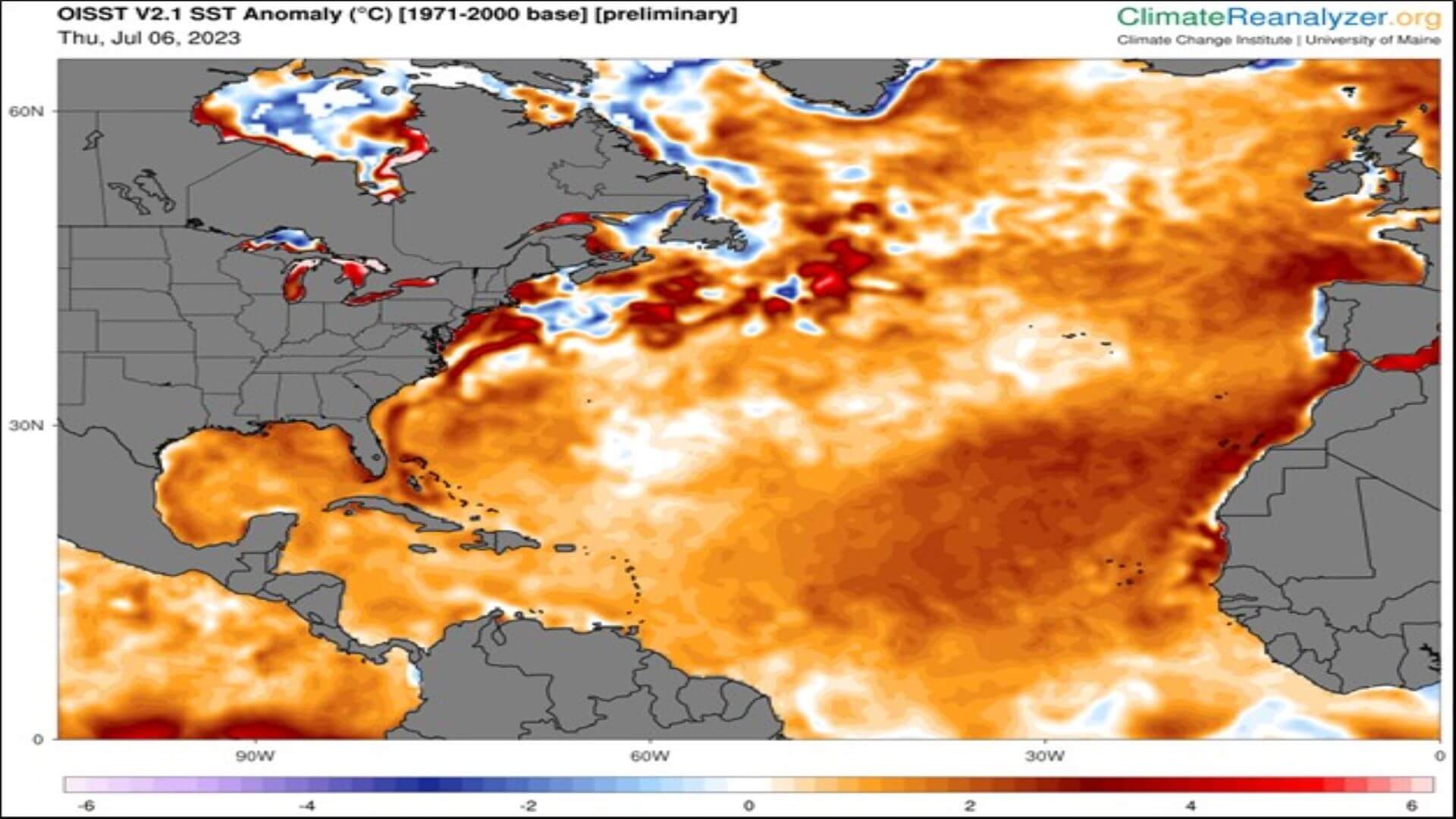Early 2023 hurricane season brings records, with two storms formed simultaneously
Named storms during the first month of the hurricane season, which spans from June 1 through Nov. 30, are not out of the ordinary. In fact, they are quite common. Over the past 30 years, there have been 30 named storms in the month of June.
However, on June 22, two named tropical storms churned simultaneously in the North Atlantic Ocean Basin. These storms were Bret and Cindy (Figure 1). Such an occurrence is quite rare. The last time there were two simultaneous named storms in the Atlantic in June was in 1968 with Brenda and Candy.
The situation this June was extraordinarily unique because of the storms’ origins. As a matter of fact, it was unprecedented. Both Bret and Cindy formed from waves off the coast of Africa, well east of the Caribbean.
Historically, early-season hurricane development is more frequent in the western Gulf of Mexico or off the southeast coast of the U.S., closer to land where sea surface temperatures (SSTs) are high enough to support tropical cyclone genesis. Typical June SSTs between Africa and the Caribbean Sea in the Atlantic Ocean are not high enough to support tropical cyclone genesis.
+2°F
The amount by which Atlantic Ocean temperatures have risen beyond the 1982 – 2011 average.
Bret and Cindy’s formation off the coast of Africa is concerning because this signifies that the Atlantic Ocean is already warm enough for hurricane development and will only continue to heat up through the season.


Fortunately, neither Bret nor Cindy proved to be particularly impactful. Bret brought tropical storm winds and heavy rainfall to the Lesser Antilles before dissipating in the southern Caribbean Sea. Cooler ocean temperatures and higher vertical wind shear caused Tropical Storm Cindy to lose steam as it moved north in the Atlantic.
But the oceanic and atmospheric state of the North Atlantic in late June is worth a second look because it created the perfect storm of conditions for such a momentous occasion.
Record Sea Surface Temperatures (SSTs) in the Atlantic Ocean
To say the North Atlantic Ocean is off to a hot start would be an understatement. The basin-wide average temperature was 75°F (29.3°C) on July 6, which is 1.6°F warmer than last year and approximately 2°F warmer than the 1982-2011 long-term average (Figure 2).
The data in Figure 2 shows that since March 2023, the Atlantic Ocean has been hotter than any year on record.

Furthermore, Atlantic Ocean SSTs will continue to rise through the summer. Ocean temperatures will typically peak between late August and early September, months that are notorious for some of the worst hurricanes in recorded history.
Figure 3 shows the July 6 SST anomaly map (relative to the 1971-2000 average) across the North Atlantic Ocean. The orange to red colors represents SSTs warmer than the long-term climatological average.
The entire basin, except a few small pockets in more northern latitudes, is exceptionally warm relative to the long-term average. Spots with the most notable increases in ocean temperatures are the areas of the Atlantic west of Africa and into the Caribbean, a region known as the Main Development Region.
Of all Category 4 and Category 5 hurricanes, 79% develop from easterly waves, just like Bret and Cindy, off the coast of Africa in the Main Development Region, according to research from Van Den Dool et al., 20061.

A Sign of More to Come?
It might be rash to say that the 2023 hurricane season will be much more active than normal if that claim is based only on the SST patterns discussed above. It is worth reiterating that conditions in the eastern Pacific Ocean are changing as we move into an El Niño phase of El Niño Southern Oscillation (ENSO). Factors that inhibit hurricane development, like vertical wind shear, are expected to be higher in the North Atlantic Ocean due to El Niño.
The balance between higher vertical wind shear and record-hot Atlantic Ocean temperatures will determine how severe the 2023 hurricane season will end up. What we can say with certainty is that there is plenty of fuel for hurricanes to form and develop. Whatever the future holds, the season is off to a hot start, as seen with the formation of Bret and Cindy.
And since it only takes one landfalling hurricane for a season to be catastrophic, it is important to always be informed of the risk in your area. To stay up to date on the 2023 hurricane season, download the CoreLogic® 2023 Hurricane Risk Report or follow the Hazard HQ Command Central™ for reporting on major natural disasters.
©2023 CoreLogic, Inc. The CoreLogic statements and information in this blog post may not be reproduced or used in any form without express written permission. While all the CoreLogic statements and information are believed to be accurate, CoreLogic makes no representation or warranty as to the completeness or accuracy of the statements and information and assumes no responsibility whatsoever for the information and statements or any reliance thereon. CoreLogic® and Hazard HQ Command Central™ are the trademarks of CoreLogic, Inc. and/or its subsidiaries.
Contact: Email [email protected] if you have questions about hurricane risk or CoreLogic products.
Visit www.hazardhq.com for up-to-date information on global natural disaster activity.
[1] Van Den Dool, H. M. et. al. (2006). Seasonal-to-Decadal Predictability and Prediction of North American Climate-The Atlantic Influence. American Meteorological Society, Vol. 19, 6005-6024.


